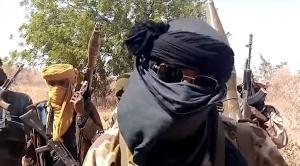Nigeria ranks sixth in global organised crime – Survey
According to the recently released 2023 Global Organized Crime Index, Nigeria has been ranked as the sixth country with the highest level of organized crime in the world. The report highlights Nigeria’s ongoing security challenges, widespread corruption, and other criminal activities.
The survey, conducted by the Global Initiative Against Transnational Organized Crime, reveals a 0.13 point increase in the status of organized criminality in Nigeria. The country scored 7.28 out of 10 points, making it the second-highest in Africa, surpassed only by the Democratic Republic of Congo (7.35) and ahead of South Africa (7.18).
In the previous report released in 2021, Nigeria was ranked fifth with a score of 7.14 points. Myanmar holds the highest criminality score (8.15), followed by Colombia (7.75) and Mexico (7.57).
READ ALSO: Nigerians rank second in world most hardworking workers index ahead of US, UK
The report emphasizes that criminality levels are increasing worldwide, while measures to combat them fall short of addressing the threat adequately.
Specifically, Nigeria received a score of 7.20 points in the criminal actors category, indicating a 0.5 increase, and an 8.50 score in the criminal network category. The survey also notes a rise in the presence of foreign criminal actors operating within Nigeria, with a 0.50 increase in that category.
The country scored 5.50 points for the presence of mafia-style groups, 7.00 points for involvement of private-sector actors, and 7.50 points for state-embedded actors.
For clarity, the report defines organized crime as illegal activities carried out by groups or networks in coordination, involving violence, corruption, or related actions that yield financial or material gain. These activities can occur within a country or transnationally.
The complex and secretive nature of organized crime is acknowledged in the report, which draws from an extensive dataset and the expertise of over 400 global experts.
Nigeria currently faces a range of escalating security challenges, resulting in numerous humanitarian crises. All six of the country’s geo-political zones confront issues such as terrorism, human trafficking, arms smuggling, and more.
Instances of money laundering and corruption among government officials, both senior and junior, further contribute to Nigeria’s crime landscape.
The North-east continues to grapple with the Boko Haram insurgency, while the North-west faces ongoing threats from local bandit groups that regularly target rural communities and engage in widespread kidnapping for ransom as well as the killing of motorists and other residents. Thousands of people have either been killed, abducted, or displaced in the region.
In the North-central, farmers and herders have been engaged in a tit-for-tat crisis leading to the death and displacement of hundreds of people. In recent years, the crisis has evolved to become more ethno-religious in complexion.
A part of the region is also being attacked by bandits.
In the South-east region, secessionist agitation is rife, and thousands of people have been killed by the separatist group, the Indigenous People of Biafra (IPOB) and other copycat criminal groups in the region.
In the South-south region, sea piracy and oil theft have continued with the military accused of involvement in the theft.
In the South-west region, kidnapping and armed criminality are on the increase.
Follow the Neptune Prime channel on WhatsApp: https://whatsapp.com/channel/0029Va74ZvU2v1IqKByXoX3d
Do you have breaking news, interview request, opinion, suggestion, or want your event covered? Email us at neptuneprime2233@gmail.com


